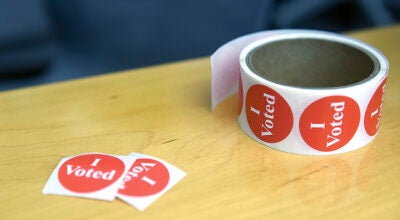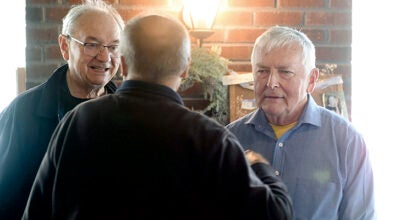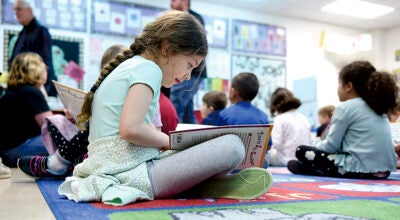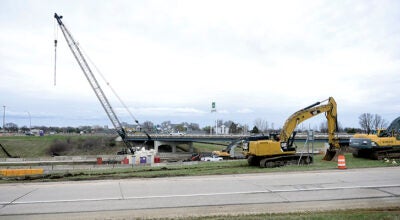Candidate Q&A: Austin mayoral candidates talk economic development
Published 7:01 am Wednesday, September 16, 2020
|
Getting your Trinity Audio player ready...
|
Author’s note: This is a continuation of the Herald’s ongoing candidate Q&A features and the fourth involving Austin’s mayoral candidates. In this feature, candidates Jeff Austin and Steve King were asked questions about economic development. Here are their responses.
1. How would you rate Austin’s economic growth over the past five years?
Austin: I would say that over the last five years Austin’s economic growth has been good. We had the redevelopment of the former Oak Park Mall site with a new Hy-Vee and the subsequent repurposing of the old Hy-Vee store into retail space. We have also seen growth and expansion at some of our major employers – Hormel, QPP and Mayo Clinic Health Systems. It also seems that pre-pandemic, most businesses in town were hiring, which to me would indicate growth.
King: I give the City of Austin a 7 out of 10 rating for economic growth over the past five years. As much as I would like to see more robust growth, the city has certainly shown promising gains over the past several years. Developments like the Hy-Vee grocery store, along with the addition of Marshall’s in the former Hy-Vee site, are front of mind. Additionally, the redevelopment of the former Target shopping center, the newly opened Cobblestone Hotel, and the continued growth on 18th Avenue Northwest stand out as a few accomplishments of which to be proud.
While these retail developments show progress, Austin continues to position itself for the addition of another larger employer. But for Hy-Vee Corporate deciding to re-evaluate their business model, Austin had been selected for a large regional distribution center that would have brought a couple hundred jobs with starting wages close to $19 per hour. While this distribution center didn’t come to fruition, the efforts of many have earned our city a reputation as a collaborative city with the capacity for growth and willing partnerships to help spur development.
2. Which existing city economic development programs (if any) would you like to see expanded or enhanced?
Austin: It is important to keep the Austin Port Authority, the City’s economic development arm, active and growing. I would like to see us extend the Housing Tax Abatement program; with the budget cuts to our housing initiative funds, we need to maintain some focus and program in place to encourage new housing development.
King: Recently city staff, in collaboration with the Development Corporation of Austin, Austin Utilities and other partners, put together a road map of incentives to attract an employer who will bring quality jobs with quality wages to our city. Through our past efforts, we have learned that timing is extremely important when responding to inquiries from corporations looking to relocate or expand into Austin. By having these protocols in place, we can respond with certainty to these companies with our best offer of available land, infrastructure and incentives in the timeliest manner. It will be exciting to see how this initiative drives future development as we look for even more creative ways to enhance it.
3. What key issues should city leaders focus on to foster economic development?
Austin: In the short term, we need to do what we can to help business survive as COVID-19 is still a threat. In the long term, we need to make sure we have the infrastructure in place and land available for businesses to relocate and expand here. We need to continue to focus on housing – we want those who work here to live here and shop here! We need to do what we can to make sure the processes are in place to be as business-friendly as possible.
King: It’s well worth mentioning that the City of Austin has done an amazing job with our flood mitigation program. It’s hard to imagine Austin being able to grow economically if not for the efforts to control flood waters through the vast network of flood walls, berms and land acquisitions over the past several years. Many businesses and property owners have been severely impacted during these all too frequent flood events. Over nearly 20-years, the City of Austin has been good stewards of our half-cent Local Option Sales Tax (LOST). These LOST funds have historically captured roughly $1.3 million per year. This money is set aside to only be used for flood mitigation projects in Austin. Our LOST, coupled with Department of Natural Resources grants, has allowed Austin to save itself from further flood damage and protect area businesses and homes. This flood protection significantly lowers the risk of losses to companies and inspires developers to build where years prior there might not have been an option.
Additionally, expanding housing options and rehabilitating our existing housing stock is another issue the city should focus on to foster economic growth. It’s difficult to entice new employers to town without available housing for its labor force. With flood control in place, we are now able to encourage housing developments on property that would have otherwise been unavailable.
4. Anything else you want to add?
Austin: During the restrictions put on us during the response to COVID-19, it has been great to see the residents of Austin rally around local businesses and support them in an amazing fashion! As we work our way to “normal” I hope that we continue to support our local businesses and make it a habit to shop local.
King: There is a great amount of effort being done by our competent and creative city staff to grow Austin. We continue to leverage many wonderful partnerships and work collaboratively to create opportunities that put us in the best position for such growth.
I’m grateful for your continued support as we advance past the primary election and onto the general election on Nov. 3. Please vote.





